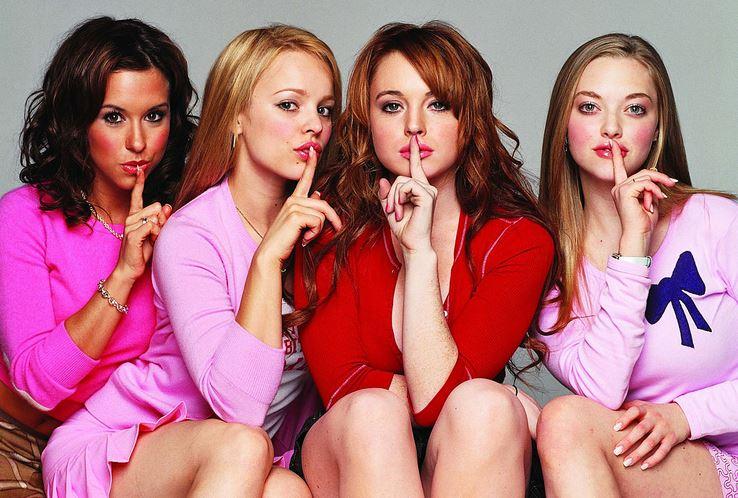
Credit: Flickr/Athene LeTrelle
“I saw her wedding pictures on Facebook. She looked really bad,” I opined to my friend, Kara. The comment was targeted at our former childhood friend, Nora—who recently blocked Kara on Facebook for unknown reasons.
It wasn't the first time I got, in a word, bitchy when talking about a girlfriend—in fact, you might call me something of a mean girl. Or at least a former mean girl.
Here's another example, and please, don't judge too harshly:
Brandon was a hot guy from California whose father worked with mine. He was in Manhattan for the summer, so I invited him out with my friends so I could get drunk and hook up with him. Looking back, it was completely inappropriate, but I wanted what I wanted. The problem? One of my closest friends from high school, Paige, wanted him, too.
At that point, I had sort of been sick of Paige for a while, who was encroaching on my territory as the drama queen bee. Paige subsequently hooked up with Brandon, and I got jealous. I ended our friendship a few weeks later by having her thrown out of a bar and convincing my circle of friends, who she had become a part of, to abandon her.
Oh, and did I mention her father was dying of ALS?
And then there was that time I broke a cardinal rule—I slept with my best friend’s ex-boyfriend. The entire time Adrienne dated Leo, he had a huge crush on me. In high school, he would come over and we would hang out just the two of us . . . unbeknownst to Adrienne. But nothing ever happened between us—and besides, I had a boyfriend. Freshman year I was studying abroad in London, and Leo was going to school in Monaco. He invited me to visit him (who wouldn’t want to visit Monaco?) and . . . you can fill in the blanks.
In retrospect, I'm not proud of the way I acted. But I also know I'm not alone.
Mean Girl Nation
I grew up in New York City, but because I went to an girls-school—with 19 in my graduating class—I may as well have grown up in a very small town. You'd think a class this size would foster closeness; instead, I’ve heard stories about classmates literally running from each other at the supermarket.
Perhaps more alarmingly, it seems these mean tendencies don't wane with age and presumed wisdom. Many years ago, my mother’s circle of friends included a woman named Stella. Stella's boyfriend of many years never married her, she was constantly getting fired from jobs, and, well—she was basically a major downer. One day, my mom and her bestie, Kim, decided to drop her.
Cut to 10-plus years later, and my mother, Kim and I were in line outside a movie theater. My mother went inside the building to use the restroom; when she came out, she said she thought she saw Stella inside. Last they heard, Stella gained a ton of weight (she was always skinny) and had awful plastic surgery. My mother and Kim proceeded to take turns going in and out of the building stalking her. It was like a scene out of middle school. (Honestly, I’m surprised Stella never dropped my mother and Kim as friends.)
When even your mom is acting like this, it's worth asking: What's the deal with mean girl culture?
What The Science Says
Female cattiness can in part be traced to a biological and socialized imperative to compete with other women. According to Agustín Fuentes, Ph.D.:
“The bottom line is that females are bitchy to other females when they: a) see those females as a threat to their men or potential prize sexual partners, and/or b) when they want a leg up in the amazingly competitive world where females seek high-value males who will father their children.”
Is this a gender reductive reading? Yes. But there is something to be said for our instinct to procreate—and to secure the most desirable partner for that purpose. (Men, too, have been known to exhibit less-than model behavior when competing for a sexual partner.)
And then there's the issue of power, coveted even at a young age. In her book The Mean Girl Motive, Nicole E. R. Landry explains that popularity is power . . . and that the most popular girls were also the meanest:
“With few positions available at the top, girls learn to negotiate their status carefully through such mechanisms as gossip, meanness, catfights and word fights. All these mechanisms endorse passive competition among girls for power and male approval without challenging the privileged status of male aggression and dominance.”
In other words, the patriarchal system, and the limited opportunities it affords girls, is also partly to blame. When there are fewer positions of power available to girls, it creates a market for competitive cruelty in order to get ahead.
As for that episode with my mom, it seems being cruel isn’t a behavior women necessarily grow out of. As Cheryl Dellasega, who wrote Mean Girls Grown Up, explains it:
“The [aggressive] behavior just gets a little more polished and subtle [as we get older]. You know the transformation: The cool girl in chemistry class who didn’t invite you to her post-graduation party becomes the office diva who 'forgets' to forward you an important email at work. The fair-weather friend who flirted with your first rush turns into the frenemy who won’t keep her manicured mitts off your fiancé.”
All that said, mean girl syndrome isn't something any woman must simply accept; it is possible to consciously change how you act, and to repudiate the forces, especially socialized, at play. In my case, it's taken some honest self-reflection to realize I needed to change. Today, I try to be nicer to other women. I go out of my way to give those I know (and some I don't know) compliments, much in the same manner I once went out of my way to be mean. I also try to help other women professionally in whatever way I can.
I know I never want to find myself at a movie theater one night, middle-aged and having learned nothing. What does being a mean girl do, really, but ruin an otherwise nice night out?
*Names have been changed.






